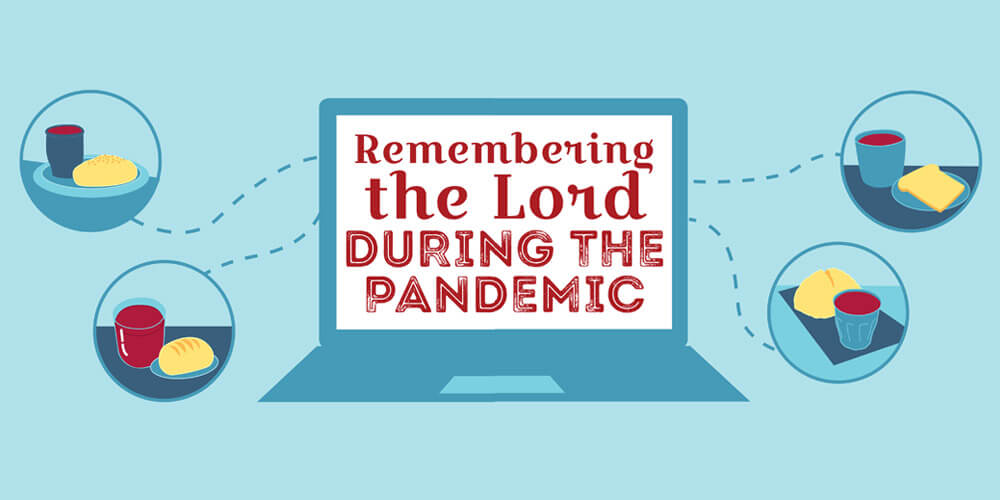On the eve of His crucifixion, the Lord Jesus instructed His disciples to keep the Lord’s Supper often and as He had prescribed it. When they did gather to break bread, they were to maintain the feast’s intended purpose of remembering Him. Paul conveys the Lord’s commands to the church at Corinth: “Take, eat; this is My body which is broken for you; do this in remembrance of Me.” In the same manner He also took the cup after supper, saying, “This cup is the new covenant in My blood. This do, as often as you drink it, in remembrance of Me” (1 Cor. 11:24-25). Believers are to keep the Lord’s Supper often, but no specific regularity was stated. The first Lord’s Supper was not held in a local church building, in fact, the Church did not exist at that time. In the early days of the Church Age, believers obeyed the Lord’s command by continuing steadfastly in the breaking of the bread (Acts 2:42), and they did so often from house to house (Acts 2:46). Clearly, believers were meeting informally and often to remember the Lord (not just on Sundays or as a local assembly).
Years later, the practice of the local church gathering together on Sundays to break bread became the standard pattern of the Church. For example, Paul uses the language “when you gather together” five times in 1 Corinthians 11 to speak of the local church keeping the Lord’s Supper while together in one place. On another occasion, Paul waited a week in Troas to break bread with the saints there on Sunday (Acts 20:7). However, because Paul preached long, they actually did not break bread until the wee hours on Monday morning and that was completely acceptable. To summarize then, the commands for the Lord Supper are to do it often and to preserve its protocol and purpose. The developed pattern of the Church was that saints gathered together in local assemblies on Sunday’s to break bread together. The latter point is a scriptural observation, which means there is no prohibition in Scripture preventing saints from remembering the Lord on other days of the week or in smaller groups.
Through the years we have often remembered the Lord through the breaking of bread with those who were sick in the privacy of their homes and on weekdays. There have been times while traveling that our family has remembered the Lord at a picnic table in a roadside park because that was the best opportunity available for us to do so. The Lord wants us to remember Him by breaking bread and we should seek to be with others if physically possible to do so, unless there are good spiritual reasons for not doing so. Such as someone professing Christ but is unsound in doctrine or in life (i.e., a person is continuing in unconfessed sin, perhaps under church discipline). But these are spiritual factors not limited by a physical location. The Lord’s fellowship is spiritual and all believers should remain seated with Him at His Table in glory every moment of every day (1 Cor. 10:16-22). The Lord’s Table reaches beyond just the physical gatherings of saints. How else can we gather to the Lord seated on the throne of God, unless He spiritually is with us (Matt. 18:20).
On this point, notice Paul’s language towards believers in other locations, “For I indeed, as absent in body but present in spirit, have already judged (as though I were present) him who has so done this deed” (1 Cor. 5:3-4). “Now this I say lest anyone should deceive you with persuasive words. For though I am absent in the flesh, yet I am with you in spirit, rejoicing to see your good order and the steadfastness of your faith in Christ” (Col 2:4-5). Though Paul was separated by distance, he was still with these saints in spirit. This means that if he had had the opportunity to video conference with those he was connected with in spirit (to see and hear the saints in real time) I think he would have gladly done so. So, while we are in physical isolation because of the COVID-19 crisis, it seems pertinent for us to obey the Lord’s command of remembering Him the best way that we can by gathering in spirit with others who can. It is realized that during this interim we cannot follow the practice of the Church witnessed in Scripture. While following the scriptural pattern is safe for guiding our behavior, not observing what is observed should never negate what is commanded. Let us follow the Lord’s command and remember Him the best possible way we can!

